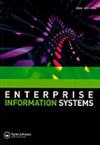基于cloudpos的区块链网络中资源管理的Stackelberg游戏框架
IF 3.9
4区 计算机科学
Q1 COMPUTER SCIENCE, INFORMATION SYSTEMS
引用次数: 0
摘要
摘要本文提出了一个两阶段Stackelberg博弈框架来研究基于cloudpos的区块链网络中的资源管理,分析了多种因素对云服务提供商(CSP)和矿工的最优策略和利润的影响。结果表明,该模型能使CSP和矿工的利润最大化,固定奖励、总供给和传播延迟对矿工的决策有单调影响,而对CSP的决策有非单调影响;矿工的数量对这两个决策都有非单调的影响。我们的研究结果强调CSP应该控制参与云挖矿的矿工数量和资源的总供给。关键词:区块链,云计算,权益证明,ackelberg博弈,价格决策。[71971218],国家社会科学项目“提升物流服务质量与低碳治理机制研究(21FGLB046)”。披露声明作者未报告潜在的利益冲突。本研究得到国家自然科学基金资助[71971218]。本文章由计算机程序翻译,如有差异,请以英文原文为准。
A Stackelberg game framework for resource management in the CloudPoS-Based blockchain network
ABSTRACTThis paper proposes a two-stage Stackelberg game framework to study resource management in a CloudPoS-based blockchain network, analyzes multiple factors’ impact on optimal strategies and profits of cloud service provider (CSP) and miners. The results show that the proposed model can maximize the profits of CSP and miners, the fixed reward, the total supply, and the propagation delay have a monotonic impact on miners’ decisions, but a non-monotonic impact on CSP’s decisions; the number of miners has a non-monotonic impact on both decisions. Our findings emphasize that the CSP should control the number of miners participating in cloud mining and the total supply of resources.KEYWORDS: blockchaincloud computingproof-of-stakeStackelberg gameprice decision AcknowledgmentsThis research is partially funded by the grant of National Natural Science Foundation of China [No. 71971218], the National Social Science project of China “Research on Improving Logistics Service Quality and Low Carbon Governance Mechanism (21FGLB046)”.Disclosure statementNo potential conflict of interest was reported by the author(s).Additional informationFundingThis work was supported by the National Natural Science Foundation of China [71971218].
求助全文
通过发布文献求助,成功后即可免费获取论文全文。
去求助
来源期刊

Enterprise Information Systems
工程技术-计算机:信息系统
CiteScore
11.00
自引率
6.80%
发文量
24
审稿时长
6 months
期刊介绍:
Enterprise Information Systems (EIS) focusses on both the technical and applications aspects of EIS technology, and the complex and cross-disciplinary problems of enterprise integration that arise in integrating extended enterprises in a contemporary global supply chain environment. Techniques developed in mathematical science, computer science, manufacturing engineering, and operations management used in the design or operation of EIS will also be considered.
 求助内容:
求助内容: 应助结果提醒方式:
应助结果提醒方式:


